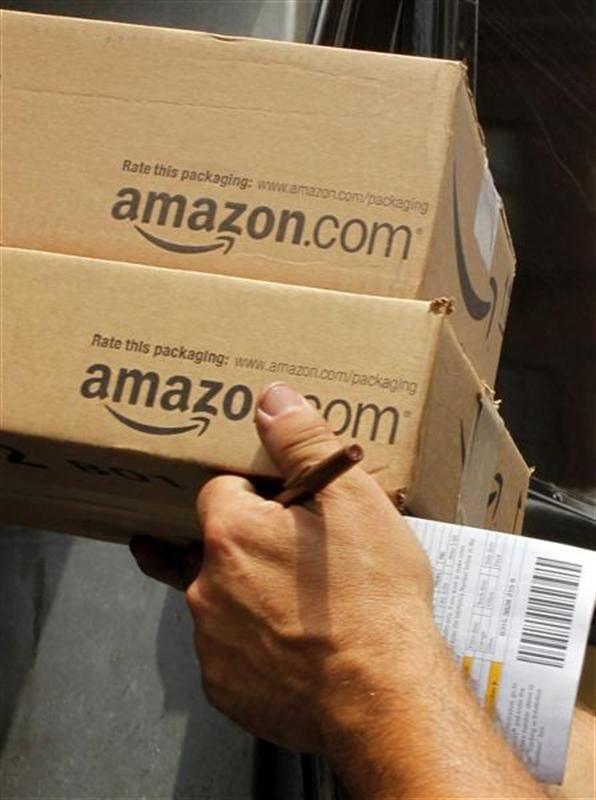Amazon Price Check App Comes Under Fire from Congress, Retailers

The Amazon Price Check app seems simple enough. Shoppers use the app, introduced earlier in 2011, to compare the retail giant's prices with other retailers. They scan a barcode, snap a picture, say the product name or type the search.
On Saturday, Amazon will ramp up promotion of the app. It will offer a 5 percent discount to all shoppers that use the app. Moreover, it will ask that shoppers submit in-store prices with the Price Check app. But in doing so, Amazon has ballooned the app into anything but simple, turning it into a controversy targeted this week by leading retail groups and members of Congress such as Republican Senator Olympia Snowe of Maine.
Amazon's promotion -- paying consumers to visit small businesses and leave empty-handed -- is an attack on Main Street businesses that employ workers in our communities, Snowe said in a statement Thursday.
Small businesses are fighting every day to compete with giant retailers, such as Amazon, and incentivizing consumers to spy on local shops is a bridge too far.
Snowe has a problem with the price-check-and-run philosophy she feels Amazon is promoting with the app. Others in retail lament competition getting tougher and say Amazon continues to take advantage of tax-code loopholes. Amazon, in an attempt to perhaps revert to simplicity, has said little.
But when all is added up, what results is a flurry of backlash against the United States' largest online retailer, a battle that, as evidenced in Snowe's remarks, is becoming one of Main Street vs. its bully.
On Tuesday, Amazon announced it would add the promotions to its app as incentives. Almost immediately, that ignited the storm of backlash. The Retail Industry Leaders Association released a statement the next day, calling the move one that gives Amazon an unfair competitive advantage.
However, that wasn't the only problem the association had with the app.
Amazon's motivation comes from the fact that they don't collect sales tax, RILA spokesman Brian Dodge said in a phone interview Friday. Every mainstream merchant does. A merchant could match the price consumer would match on Amazon. What they can't do is collect sales tax. That's an advantage Main Street can't overcome.
That Amazon does not have to collect sales tax comes from a 1992 Supreme Court decision, Quill v. North Dakota, that predates the widespread use of the Internet. In the ruling, the Supreme Court determined that retailers are exempt from collecting sales taxes if they do not have a physical presence in a state.
Amazon, of course, does not have a physical presence anywhere -- at least where it sells. Dodge said there are two bills building bipartisan support in Congress to close this loophole in light of the comprehensive modernization that has come over the last 20 years.
At least three other Republicans have come out recently to express the need to close the loophole -- Tennessee Sen. Lamar Alexander, Indiana Rep. Mike Pence and Mississippi governor Haley Barbour. On Nov. 30, officials and retailers called on the House Judiciary Committee to finally close the loophole.
Barbour, on the other hand, wrote a letter to Republican Sens. Mike Enzi of Wyoming and Lamar Alexander of Tennessee, saying that collecting sales taxes was now easy with improved technology.
The time to level the playing field is now, as there are no effective barriers to complying with the states' sales tax laws, Barbour said.
The backlash -- and the new promotions -- come just more than a month after Amazon endorsed a bipartisan bill enabling states to collect sales taxes from retailers. The bill was introduced by Enzi, Alexander and Illinois Democrat Dick Durbin.
Amazon strongly supports enactment of the Enzi-Durbin-Alexander bill and will work with Congress, retailers, and the states to get this bi-partisan legislation passed, Paul Misener, Amazon's vice president of global public policy, said in a Nov. 9 statement. It's a win-win resolution. The bill, the Marketplace Fairness Act, looks likely to pass.
On this issue, though, Amazon has stayed silent. Its media relations department did not respond to multiple requests for comment throughout the week. Its only comments on the promotion came in its announcement.
Then, Sam Hall, director of Amazon Mobile, painted the deal as a win for consumers. By reporting the prices of competitors, he said, consumers are ensured the lowest prices throughout the year.
But from the backlash, it's obvious not everyone sees the same picture.
Merchants aren't afraid to compete on price, Dodge of the RILA said. They've been doing that every day. What they can't do is compete on an unleveled playing field.
© Copyright IBTimes 2025. All rights reserved.




















